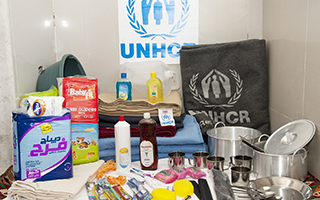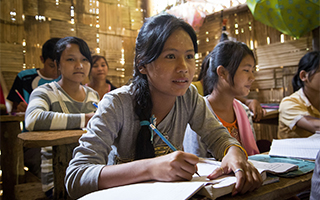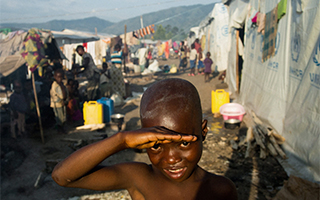Who We Help
UNHCR helps millions of refugees around the world.
Every year, we help millions of people whose lives have been turned upside down by crisis. Whenever and wherever people are uprooted by conflict, UNHCR is there offering life-saving assistance, safeguarding their rights and restoring hope, safety and dignity.
Who is a Refugee?
Refugees are people whose lives have been torn apart when violence arrives on their doorstep, or when they are persecuted for their religious or political beliefs. Refugees are driven from their homes and communities by factors outside their control. It happens so fast. Quite literally, refugees are people running for their lives. And they remain uprooted for an average of 20 years.
Over 18.5 million refugees around the world depend on UNHCR for protection and support. Many find refuge in camps—where our staff and partners provide essential services. Others, known as urban refugees, live in towns and cities where they are often hidden from view, making it more difficult to access basic resources necessary for survival.
22.5 million refugees in the world
Who is an Internally Displaced Person (IDP) ?
News reports tend to spotlight refugees in sprawling camps, but a large number of people forced to flee their homes never cross an international border. These individuals are known as internally displaced persons, or IDPs, who seek safety anywhere they can find it—in nearby towns, schools, settlements, internal camps, even forests and fields. IDPs, which include people displaced by internal strife and natural disasters, are the largest group that UNHCR assists.
Unlike refugees, IDPs are not protected by international law or eligible to receive many types of aid because they are legally under the protection of their own government. Countries with some of the largest internally displaced populations are Iraq, South Sudan and Syria.
Over 38.8
million internally displaced people are assisted by UNHCR
Who is a Stateless Person?
Statelessness is a condition in which someone is not considered a citizen of any country. Statelessness is often a result of discriminatory policies against minority groups or the exclusion of residents from citizenship when a country gains independence. When people are stateless, they often do not enjoy the same rights as citizens—such as the right to vote or to access education.
UNHCR is leading an international campaign to end statelessness—we assisted 60,800 stateless people to acquire or confirm their nationality in 2016. We have a mandate to work with governments to prevent statelessness from occurring, to resolve cases that do occur and to protect the rights of stateless persons. Our staff works to reform laws and lobby countries to ratify and implement the 1961 Convention on the Reduction of Statelessness, of which Canada is a signatory. It stipulates, among other things, that everyone has the right to a nationality.
10 million stateless people around the world
Who is an Asylum-seeker?
Asylum is the right to be recognized as a refugee and to receive legal protection and material assistance. An asylum-seeker is someone who seeks international protection, but whose claim for refugee status has not yet been evaluated. We believe those fleeing violence should have the chance to tell their stories, apply for asylum and be properly evaluated.
Individual countries decide which asylum-seekers qualify for protection. Asylum-seekers must demonstrate that their fear of persecution in their respective home country is well-founded and that they could face harm if returned home.
3 million asylum seekers in 2017
LEARN MORE
Emergency Relief
UNHCR can deploy humanitarian aid and expert response teams within 48 hours of a large-scale emergency to jump-start relief and protection assistance for more than 600,000 newly displaced people.
Rebuilding Lives
Long after emergencies have left the headlines, UNHCR remains on the ground to help revive devastated communities and help displaced families return, recover and restart their lives.
Where We Work
UNHCR works in 130 countries around the world. Our staff are based in some of the most isolated, volatile and challenging places in the world.



